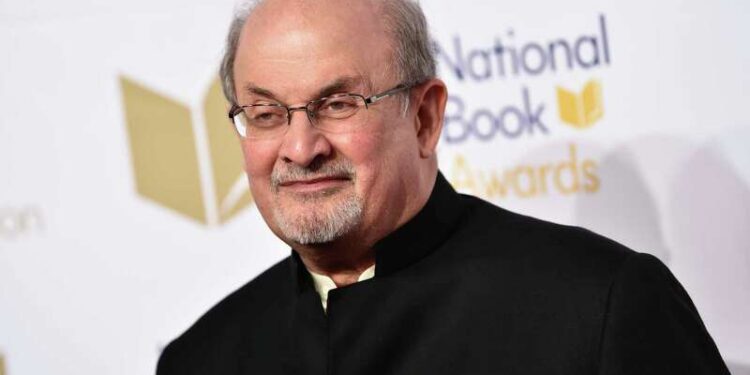By Enyichukwu Enemanna
Celebrated writer, Salman Rushdie is now off ventilator and is “on the road to recovery,” his agent confirmed Sunday, after he sustained serious injury in a stabbing at a lecture in New York on Friday.
The announcement follows news that the author of “The Satanic Verses” is now able to talk after he was removed from ventilator on Saturday. Literary agent Andrew Wylie cautioned that although Rushdie’s “condition is headed in the right direction,” his recovery would be long.
Rushdie, 75, suffered a damaged liver and severed nerves in an arm and in an eye that he was likely to lose, Wylie had previously said.
“Though his life changing injuries are severe, his usual feisty & defiant sense of humour remains intact,” Rushdie’s son Zafar Rushdie said in a Sunday statement that stressed the author remained in critical condition.
The family statement also expressed gratitude for the “audience members who bravely leapt to his defence,” as well as police, doctors and “the outpouring of love and support.”
Hadi Matar, 24, of Fairview, New Jersey, pleaded not guilty Saturday to attempted murder and assault charges in what a prosecutor called “a targeted, unprovoked, preplanned attack” at western New York’s Chautauqua Institution, a nonprofit education and retreat center.
The attack was met with global shock and outrage, along with praise for the man who, for more than three decades, including nine years in hiding under the protection of the British government, has weathered death threats and a $3 million bounty on his head over his book, “The Satanic Verses.”
Authors, activists and government officials cited Rushdie’s bravery and longtime championing of free speech in the face of intimidation. Writer and longtime friend Ian McEwan labeled Rushdie “an inspirational defender of persecuted writers and journalists” and actor-author Kal Penn called him a role model, “especially many of us in the South Asian diaspora.”
“Salman Rushdie — with his insight into humanity, with his unmatched sense for story, with his refusal to be intimidated or silenced — stands for essential, universal ideals,” U.S. President Joe Biden said in a Saturday statement. “Truth. Courage. Resilience. The ability to share ideas without fear.”
Rushdie, who was born in India to a Muslim family and has lived in Britain and the U.S., is known for his surreal and satirical prose, beginning with his Booker Prize-winning 1981 novel “Midnight’s Children,” in which he sharply criticized then-Indian Prime Minister Indira Gandhi.
Infused with magical realism, 1988’s “The Satanic Verses” drew ire from some Muslims who regarded elements of the novel as blasphemy.
They believed Rushdie insulted the Prophet Muhammad by naming a character Mahound, a medieval corruption of “Muhammad.” The character was a prophet in a city called Jahilia, which in Arabic refers to the time before the advent of Islam on the Arabian Peninsula. Another sequence includes prostitutes that share names with some of Muhammad’s nine wives. The novel also implies that Muhammad, not Allah, may have been the Quran’s real author.
The book had already been banned and burned in India, Pakistan and elsewhere when Iran’s Grand Ayatollah Ruhollah Khomeini issued a fatwa, or edict, calling for Rushdie’s death in 1989. Khomeini died that same year, but the fatwa remains in effect — though Iran, in recent years, hadn’t focused on Rushdie.




































